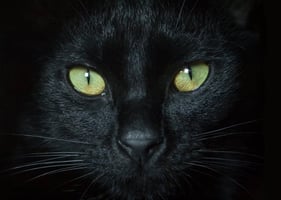Have you ever thought about how your cat views the world? If they see the same as we do? let's...
Hypoallergenic Cats: The Best Breeds for Cat Allergy Sufferers
Despite the buzz around "hypoallergenic cats," there’s no cat breed that’s completely allergy-proof. The good news is that some cats produce fewer allergens than others, making life a bit easier for allergy sufferers. But here’s the kicker: it’s not cat hair that triggers most allergic reactions. Instead, it’s a protein called Fel d 1, which is found in a cat’s skin, saliva, and urine. When cats groom themselves, the Fel d 1-laden saliva dries on their fur and flakes off, becoming an airborne allergen that makes your allergies flare up.
Yes! While all cats produce Fel d 1, some breeds are known for producing less of this pesky protein. Plus, there are some practical steps you can take to reduce the impact of cat allergies, such as:
- Keeping surfaces clean
- Regular grooming of your cat
- Using HEPA air purifiers
- Steam cleaning carpets frequently
- Male cats tend to produce more allergens than females.
- Un-neutered males produce more allergens than neutered ones.
- Dark-colored cats are often more allergenic than light-colored cats.
- Kittens typically produce fewer allergens than adult cats.
So, while no cat is truly hypoallergenic, there’s definitely hope! Here are some breeds that might be easier on your allergies:
1. Russian Blue
Known for their striking silvery-blue coat and mesmerising green eyes, Russian Blues are as smart as they are gorgeous. They tend to produce less Fel d 1 protein, making them a possible choice for those with cat allergies.

2. Bengal
With their exotic spotted coat resembling a wild jungle cat, Bengals are unique. Their short, pelt-like coat sheds less hair, reducing the risk of triggering allergies. The distinctive coat also requires less maintenance.

3. Sphynx
The Sphynx is a hairless breed often touted as hypoallergenic. Without fur to trap allergens, their skin doesn't shed as much Fel d 1 into your environment. However, they do require regular baths to keep their skin clean and healthy.

4. Siberian
Despite their luxurious, long coats, Siberians can actually produce fewer Fel d 1 allergens than many other breeds. These playful and affectionate cats offer a blend of beauty, personality, and potential allergy relief.

5. Cornish Rex
The Cornish Rex stands out with its short, curly coat that consists only of the soft undercoat. This breed sheds less than others, making it a good option for people concerned about cat allergies.

6. Javanese
Javanese cats boast a single coat, making them produce fewer allergens. Their communicative nature and affectionate demeanour make them an excellent choice for cat lovers seeking a less allergenic option.

7. Devon Rex
Similar to the Cornish Rex, Devon Rex cats only have the soft down hair that typically makes up a cat's undercoat. They shed very little, making them a suitable choice for individuals concerned about allergens. Their appearance, with big ears and soulful eyes, adds to their charm.

Don’t let their long, silky coats fool you—Balinese cats produce less Fel d 1 protein, making them a surprising choice for allergy sufferers. Their affectionate and vocal nature adds even more to their charm.

9. Oriental Shorthair
With a sleek, short coat that sheds minimally, Oriental Shorthairs are another breed that may be easier on allergies. Regular brushing helps to keep allergens at bay, and this breed’s playful and engaging personality is sure to win you over.




